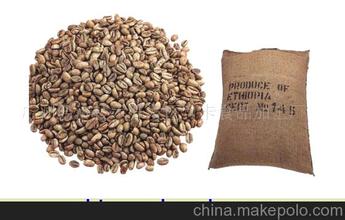Causes of coffee desolation in southeastern Ethiopia
Causes of coffee desolation in southeastern Ethiopia
Ethiopia, coffee classification and quality control system is divided into producer, regional and national three levels. All coffees are inspected by local inspection agencies before they leave the country of origin, and then re-inspected at coffee inspection and grading centres in Addis and Diredova to determine their quality grade. Grading coffee before auction and sale is important for all groups involved in production, acquisition, export and consumption. Before export, coffee must also be sent to a national quality control agency for inspection to confirm that origin, color, etc. meet export standards to ensure the reputation of Ethiopian coffee.
Getachew Mengistie, head of Ethiopia's Intellectual Property Bureau, pointed out pointedly that farmers sell for $1.45 a pound of raw beans, while Starbucks sells for $26 a pound in the United States, an 18-fold difference. The reason is that Ethiopia does not know how to use intellectual property rights to create value for farmers. As long as it is branded as Ethiopian fine beans, it can be marketed in the United States at three times the price of ordinary commercial beans. It is important to know that the investment in roasting, packaging and marketing equipment in the downstream channel of the United States alone cannot create such a huge added value, because most of the value comes from the coffee production area (if Starbucks does not have the name of "Sidamo", it will not sell at such a high price). He stressed: "Ethiopia is the birthplace of coffee. Of course, famous producing areas have great marketing value, but they are ignored by farmers. As a result, excess profits are finally earned easily by countries that know how to use the prestige of producing areas to create value."
Coffee is Ethiopia's most important export cash crop and the main source of foreign exchange earnings. Ethiopia's coffee exports account for about 3% of the world market share, making it the eighth largest coffee exporter in the world. Coffee exports increased steadily from 58,000 tons in 1990-1991 to 110,000 tons in 1995 - 1996 and remained at that level for the next few years. Export volume exceeded 110,000 tons in 2001 - 2002 and reached 127,000 tons in 2002 - 2003. The decade-long decline in coffee prices on the international market has seriously affected Ethiopia's foreign exchange earnings. Coffee exports accounted for more than half of Ethiopia's foreign exchange earnings before coffee prices dropped sharply, but now they account for only about 35 percent. However, coffee prices began to recover in 2002, rising from 41 cents per pound in September 2001 to 52 cents per pound in 2002 and 59.7 cents per pound in 2003, according to the International Coffee Organization. The average price for March 2004 was 60.8 cents per pound, a 50 per cent increase from September 2001. This is great news for Ethiopia.

Important Notice :
前街咖啡 FrontStreet Coffee has moved to new addredd:
FrontStreet Coffee Address: 315,Donghua East Road,GuangZhou
Tel:020 38364473
- Prev

Description of Flavor in Coffee growing area in Kenya introduction of Grinding scale by Variety treatment method
Flavor description of coffee growing areas in Kenya the grinding scale of the variety treatment method introduces that the Kenyan government takes the coffee industry very seriously, where it is illegal to cut down or destroy coffee trees. Kenyan coffee buyers are world-class high-quality coffee buyers, and no other country can grow, produce and sell coffee on a continuous basis like Kenya. All the coffee beans
- Next

Description of regional flavor of Manning coffee plantation introduction of variety grinding scale by taste treatment method
Manning Coffee Flavor description Taste treatment Variety Grinding scale Manning Coffee is considered to be the most mellow coffee in the world. When tasting Mantenin, you can feel obvious lubrication on the tip of the tongue. It also has a low acidity, but this acidity can also be clearly tasted, jumping micro-acid mixed with the richest aroma, so that you can easily body.
Related
- Detailed explanation of Jadeite planting Land in Panamanian Jadeite Manor introduction to the grading system of Jadeite competitive bidding, Red bid, Green bid and Rose Summer
- Story of Coffee planting in Brenka region of Costa Rica Stonehenge Manor anaerobic heavy honey treatment of flavor mouth
- What's on the barrel of Blue Mountain Coffee beans?
- Can American coffee also pull flowers? How to use hot American style to pull out a good-looking pattern?
- Can you make a cold extract with coffee beans? What is the right proportion for cold-extracted coffee formula?
- Indonesian PWN Gold Mandrine Coffee Origin Features Flavor How to Chong? Mandolin coffee is American.
- A brief introduction to the flavor characteristics of Brazilian yellow bourbon coffee beans
- What is the effect of different water quality on the flavor of cold-extracted coffee? What kind of water is best for brewing coffee?
- Why do you think of Rose Summer whenever you mention Panamanian coffee?
- Introduction to the characteristics of authentic blue mountain coffee bean producing areas? What is the CIB Coffee Authority in Jamaica?

